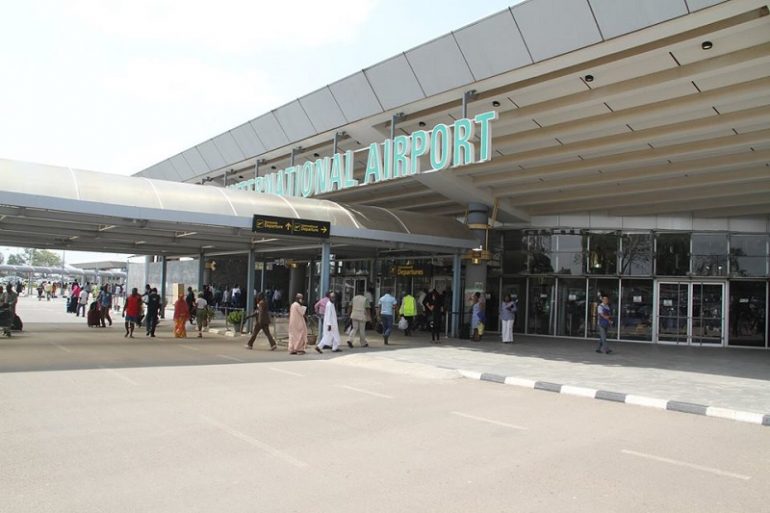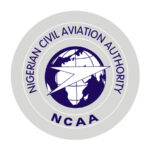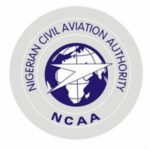Over a month after resumption of flights by domestic airlines, which suspended operation for four months due to the COVID-19 pandemic, things are not looking good as they are now on the brink with some airlines sometimes having only four passengers on a flight, as Daily Trust reports.
On July 8, 2020, the Federal Government reopened the airspace for domestic flights after over 100 days-shutdown. Prior to the reopening, the government was under intense pressure from airline operators, whose revenues have dwindled, forcing some to furlough their staff.
During the shutdown, operators had to pay for aircraft lease, insurance premium, maintenance charges and other obligations.
- Flight resumption: Last cabin row for passengers’ isolation
- NCAA to airlines: Fail to report incidents, lose licence
Restarting operations did not come easy. All airlines were assessed and reassessed by the Nigeria Civil Aviation Authority (NCAA) before they were certified fit to resume operations. And new travel protocols cost the airlines extra expenditure.
The excitement to restart was palpable but many airlines were disappointed to see small passenger traffic.
Daily Trust learnt that some days, airlines got three, four or five passengers to fill about 140-150-capacity Boeing 737 aircraft. Airlines resorted to flight cancellations while some of the passengers were fixed on other airlines in order to save cost. It would not be economically viable to fly with less than 10 per cent load factor.
Airlines have now reduced frequencies across all routes. For instance, many airlines doing four, five daily flights to Abuja from Lagos, which is the operational headquarters of most of them, had to reduce their flights to one or two.
For instance, it was learnt that Air Peace, with over 120 daily flights prior to COVID-19, cut down to about 20. With over 3, 000 workers to pay at the end of every month before servicing fuel suppliers, food vendors, and several other obligations, including charges, the maths is daunting.
Apart from airlines, other service providers as well as government agencies, which largely survive on the charges paid by airlines, are also not finding it funny. The Nigeria Airspace Management Agency (NAMA) has been borrowing to pay salary. The Federal Airports Authority of Nigeria (FAAN) has been paying half.
“It is a fact that the survival of the agencies depends on the survival of airlines. If you don’t help the airlines to break even and you continue to stymie them with multiple charges, how do you expect them to service the agencies,” a stakeholder, who wouldn’t want his name in print, said.
Unions in the industry have recently threatened to shut down airlines for sacking their members. Air Peace recently sacked some pilots ditto Bristow Helicopters, which sacked over 100 pilots and engineers. Other airlines have sacked staff as well.
Prior to the sack, Daily Trust learnt that Air Peace proposed a pay cut which some of the pilots rejected.
Chief Pilot of the airline, Capt. Victor Egonu said the proposed pay cut was an inevitable resort to keep the airline and the business floating.
According to him, the 40 per cent pay cut would still see the pilots taking between N1.9 to 2.1m monthly while the airline would be able to fulfil its obligations to the other 3, 000 workers.
Spokesman of Air Peace, Mr Stanley Olisa described the sack as a “very painful but rightful decision.”
“The airline cannot afford to toe the path of being unable to continue to fulfil its financial obligations to its staff, external vendors, aviation agencies, maintenance organisations, insurance companies, banks and other creditors hence the decision to restructure its entire operations with a view to surviving the times,” he said.
Mr Olisa insists that the airline had never owed salaries and regularly increased staff salary but the current realities mean the cuts are necessary.
Bristow also gave similar reasons for dismissing over 100 pilots. But sources said the airline was only furious that the workers were not considerate in picketing the firm and paralyzing its operations.
Observers say shutting down a company’s operations at a time operators are bleeding profusely due to the losses induced by COVID-19 coupled with the declining passengers’ traffic after flight resumptions was detrimental.
Managing Director of Aglow Aviation Services Limited, Mr Tayo Ojuri said considering low patronage, it was unrealistic for airlines to restore normal pay at the moment.
“I believe in every company, union relationship, transparency and communication is key. The staff should see the realities of the prevailing exigencies,” he said.
“The airlines are not going to manufacture money, they are not going to manufacture passengers and if there are no passengers, if there are no operations, they cannot pay. As an entrepreneur myself, I know what it feels like. So it is being able to be transparent, communicate with the staff and then have plans,” he added.
Ojuri highlighted the factors responsible for the current low load factor to include the perception of aviation as a channel of infection, low government budget occasioned by COVID-19, and the fact that major companies in Nigeria and multinationals have not lifted travel restrictions.
“The major factor is the economy. Many manufacturing companies are closing down, many companies are laying off their staff. So it is affecting the buying power. Don’t forget aviation is a function of disposable income. People are unable to fly either to visit family or friends, either for business or go for vacation,” he said.
However, President of the National Association of Aircraft Pilots and Engineers (NAAPE), Comrade Abdenego Galadima said the airlines should have followed the principle of collective bargaining stipulated by the international labour law and convention before unilaterally sacking pilots.
According to him, pilots and engineers appreciate the challenges precipitated by COVID-19 but it is unacceptable to treat them with disrespect.
On the case of Bristow, he said, “They cannot be using COVID-19 as an excuse because the cessation of flight operations did not affect essential services like the oil and gas and Bristow and Caverton were operating during lockdown. In fact, you’d recall that our members were held by the Rivers State Government during the lockdown, so how can they be using COVID-19 as an excuse.”
He, however, said the plan to shut down airlines was suspended due to the intervention of the Minister.
On the way forward, analysts believe the government needs to guarantee some loans as well as airlines adopting codeshare and opening domestic airlines to technical and foreign partnerships.
Mr. Olumide Ohunayo, another aviation analyst and a member of the Aviation Roundtable and Safety Initiative, said, “We already have airlines selling aircraft and we have others who parked their aircraft and in doing that, they have to reduce their staff, that is inevitable. What is not inevitable, is the support expected from the government. It might not be their money directly, it might be through loans, palliatives must roll out. We are hearing that the palliative is coming in 2021, by then how many airlines would be alive to receive this palliative?”
Another expert, Capt. Ibrahim Yunusa in a chat with our correspondent said the government should urgently intervene in assisting the airlines.
“These are employers of labour. we need to make sure they remain afloat. I also expect the government to assist Arik and Aero Contractors, which are under its agency, the Assets Management Corporation of Nigeria (AMCON) but other airlines, too, need support. If they are not assisted and they were forced to sack staff, it would fall back on the economy

 Join Daily Trust WhatsApp Community For Quick Access To News and Happenings Around You.
Join Daily Trust WhatsApp Community For Quick Access To News and Happenings Around You.
